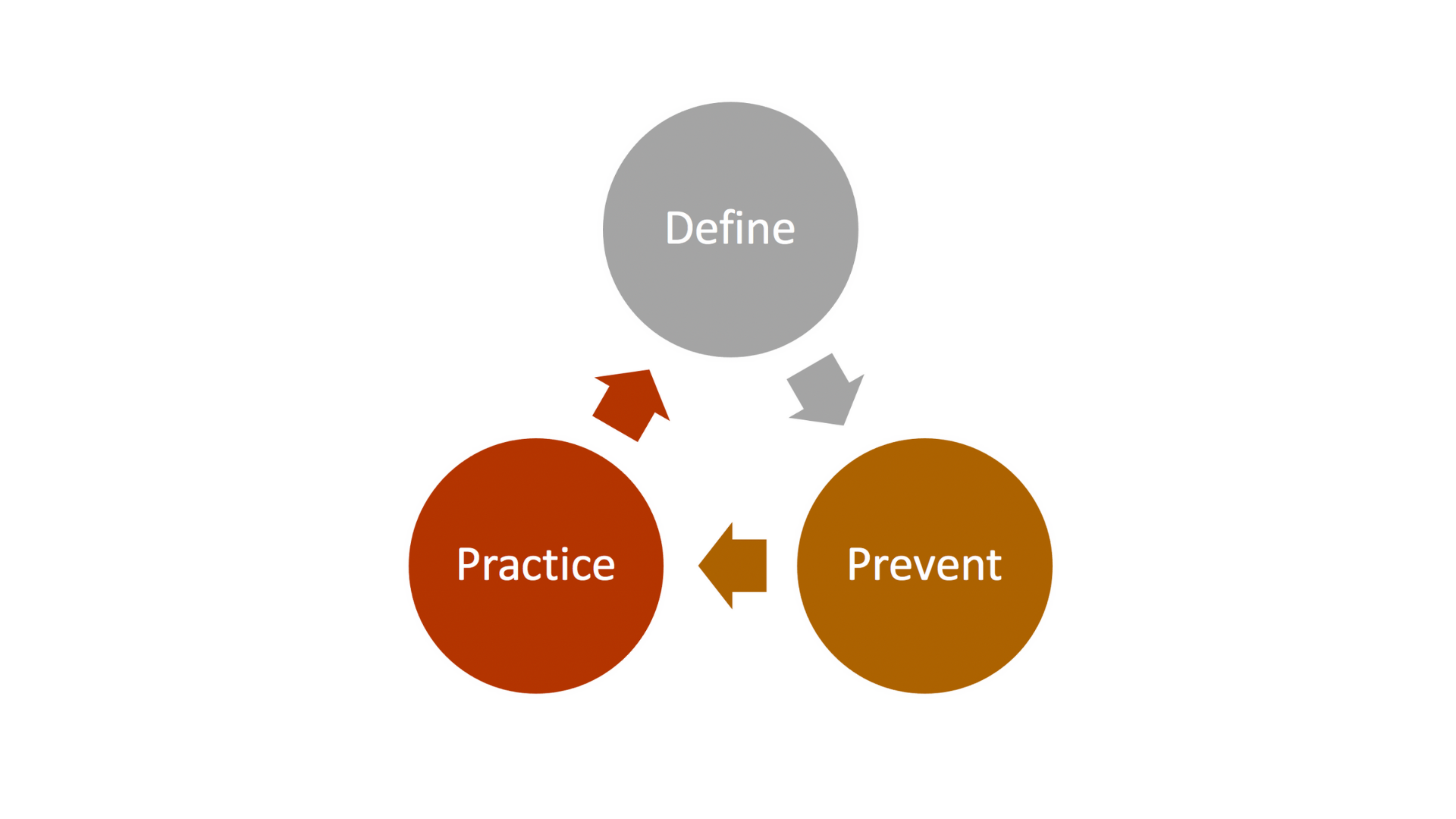PricewaterhouseCoopers (PWC) recently published a Global Crisis Survey where they outlined that 95% of business leaders need to improve their crisis management capabilities[1]. Other reports indicate that one out of four businesses do not have an up-to-date crisis plan[2]. It begs the question - Why?
Imagine being a leader in an internationally renowned hotel chain and in the middle of the night receiving a phone call that one of the hotels was engulfed in flames.This is exactly what happened to Bo Carlsson.
The call woke me at 1.14am on May 17, 2005. A hotel was on fire. Someone had thrown a Molotov cocktail into an adjacent building. The fire trucks were on their way and the evacuation of the hotel had started. My next phone call was to the internal emergency number to activate the central crises group and after that I threw myself in my car. My crisis job had started …
Bo Carlsson
In addition to a hotel burning to the ground, Bo Carlsson also stepped in as interim CEO one week after an embezzling scandal was exposed at the largest union in Sweden.
The largest newspaper in Sweden, Aftonbladet, started an investigation months before the scandal unravelled in the press. The leadership team knew that there was an investigation underway, and that something eventually would be revealed as journalists had requested documents. They even interviewed staff. If the leadership team at the union had been proactive, and acted early, the impact of the crisis that unfolded could have been reduced.
Bo Carlsson
Preparation is key. If an organisation doesn’t prepare, and ignores its vulnerability, any response to a crisis will be reactive and impulsive and the focus will be on cleaning up after the incident. To clean up reactively is always problematic. On the other hand, a proactive organisation anticipates potential crises and prepares the best it can.
As leaders, we all hope it will not happen to us but unfortunately, for many, it will. Regardless of the form a crisis may take, and there are many - fire, embezzlement, natural disasters and pandemics are just the tip of the iceberg – what’s important to appreciate is that a crisis is a problem that cannot be solved within your everyday routines, practices and resources[3].
The paradox of crisis management[4] is the less vulnerable a firm thinks it is, the fewer crises it prepares for, which means it is more vulnerable to potential harm. And the more vulnerable a firm thinks it is, the more crises it prepares for creating a more resilient organisation. Again, when preparation could limit the impact of a crisis - why are many leaders not preparing for these situations?
I’ve worked with several companies in crises situations and I’m surprised that so few are aware of what crises their company could face. Many don’t have a written plan on how to handle a crisis. When I step in as interim CEO to manage a crisis, the organisation is usually in chaos. It's extraordinary how unprepared many companies are.
Bo Carlsson
Managing crises was not an intentional career path for Carlsson, but he was well positioned from his time at Scandic and Hilton Hotels as they invest in extensive crisis training for staff. The fire at the hotel, as traumatic as it was, served as a catalyst, and Carlsson soon established himself as an expert in managing crises, and in particular fires. Since 2005, he has taken on many interim roles when fires have occurred at both restaurants and hotels all over Sweden. Long before starting my life as an academic in Australia, I was working at the hotel when the fire happened and can attest to the organisation's proactive approach and training of staff. Since then, in collaboration with Carlsson, we have taught crisis management at Business Schools in Sweden and Australia.
Below is our 3-step framework to guide your thinking, and prepare your organisation for a crisis.

Define
Making an inventory of potential crises is important for a leader or leadership team. This includes outlining and defining what crises may be relevant for your organisation. Below are questions that can guide this process:
- What contextual factors could potentially cause a crisis in your organisation?
- What types of crises could affect your brand?
- What potential commercial crises that could emerge?
- What could happen to your physical assets, such as buildings?
- Internally, what crises could be caused by a team member?
Once you have answers to these questions - make a list! As a leader it is your responsibility to know.
Prevent
By defining potential crises, the prevention has begun. Simply by creating awareness, you begin to plan out a more proactive response.
Embezzlement wasn’t the only crisis facing the union. The union also owned and operated a restaurant. This place hosted lavish parties. What went down at these parties led to allegations of sex shows and behaviour clearly not aligned with the values of the union. It was only a matter of time before owning and operating an establishment such as this was going to cause a crisis. With a little bit of forethought and preparation, this crisis should have been avoided.
Bo Carlsson
Prevention is about the culture in the organisation. The difference between a public scandal and the prevention of a crisis comes down to all team members being involved with crisis planning and feeling accountable to the organisation. Additionally, it is crucial to create a smaller crisis group that can handle the many disparate issues that arise during a crisis. This smaller team should have a variety of competences that match potential crises in your organisation.
Of course, not all crises can be foreseen or prevented, and therefore it is important to create a plan of how to handle those situations when they do arise.
Practice
Lastly, crisis management needs practice. At least once a year your crisis planning needs reviewing. Research suggests approximately 62% of companies have some version of a crisis plan, though it's uncertain how many regularly update them. In addition, few companies consistently practice crisis scenarios[5]. Practice may not make perfect but it can help an organisation recover faster.
Every year go through the crisis scenarios that potentially face your organisation. This regularity creates a stable environment for all team members. In the event of a crisis, they’ll know what their roles are and who to turn to.
Define, prevent, practice - by following these three guiding principles, we take small steps in creating more resilient organisations.
For the leader, a crisis can be a disruptive and traumatic event. But during a crisis, it’s important to focus on the main mission of the organisation, do not let the short-term challenges divert that focus. If a crisis happens, act early and be transparent, if you provide information that is not true it can escalate. Stick to what you know at that time and do not spread any unfounded information. And as a leader it’s important that you dare to take control, make decisions and do not hesitate, and delegate when needed and always follow-up. Finally, if you are in charge be visible. Show the team members that you are there. Lead by example.
When a crisis happens, you have to be in the right mindset. Act like it is the World Cup final and you’re the most valuable player on the field. You have to be on your toes. And you have to have ‘big ears’ and listen carefully. Being present and visible is not enough, you need to actively listen to the challenges your team is facing and keep adapting.
Bo Carlsson
REFERENCES
[1] Pwc (2021) Global Crisis Survey 202: Building resilience for the future. Retrieved 2021-09-10 from https://www.pwc.com/gx/en/crisis/pwc-global-crisis-survey-2021.pdf
[2] Carufel, R (2019) Crisis-plan crisis—nearly one in four companies don’t have an up-to-date plan. Retrived 2021-09-10 from https://www.agilitypr.com/pr-news/public-relations/crisis-plan-crisis-nearly-one-in-four-companies-dont-have-an-up-to-date-plan/
[3] Mitroff, I. I., Shrivastava, P., & Udwadia, F. E. (1987). Effective crisis management. Academy of Management Perspectives, 1(4), 283-292.
[4] Mitroff, I. I., Shrivastava, P., & Udwadia, F. E. (1987). Effective crisis management. Academy of Management Perspectives, 1(4), 283-292.
[5] Arenstein, S (2020) 62% Have Crisis Plans, But Few Update Them or Practice Scenarios. Retrieved 2021-09-10 from https://www.prnewsonline.com/crisis-survey-CSA-practice

Dr Sara Ekberg is a Lecturer in Entrepreneurship at Griffith University. She received her doctoral degree in Business Administration from Jönköping International Business School in Sweden. Sara’s dissertation focused on how newspaper organisations managed changes caused by digitisation, which was awarded the Oskar Sillén Award for the best doctoral thesis in Business Administration in Sweden, 2017. Sara’s research interests revolve around how organisations of various sizes overcome challenges. Her current research focuses on the challenges of founding and growing new ventures and is also interested in startup ecosystems and how we can improve the support system around entrepreneurs.

Mr Bo Carlsson is a co-founder and partner of Hops Management AB. He has over 30 years of leadership experience. He was Regional Manager for Scandic and Hilton Hotels, Operating Manager at several hotels in Sweden, such as Vidbynäs Gård and Marholmen. He was also the Operating Manger at Volvo’s canteen Sodexo. He currently serves as the Chairman of the board of Alderholmens Mekaniska. Bo has held several assignments as interim CEO during crises. He specialises in risk assessments, development of businesses, support during major damage, and insurance matters.
Professional Learning Hub
The above article is part of Griffith University’s Professional Learning Hub’s Thought Leadership series.
The Professional Learning Hub is Griffith University’s platform for professional learning and executive education. Our tailored professional learning focuses on the issues that are important to you and your team. Bringing together the expertise of Griffith University’s academics and research centres, our professional learning is designed to deliver creative solutions for the workplace of tomorrow. Whether you are looking for opportunities for yourself, or your team we have you covered.
Advance your career with Griffith Professional
Griffith's new range of stackable professional courses designed to quickly upskill you for the future economy.